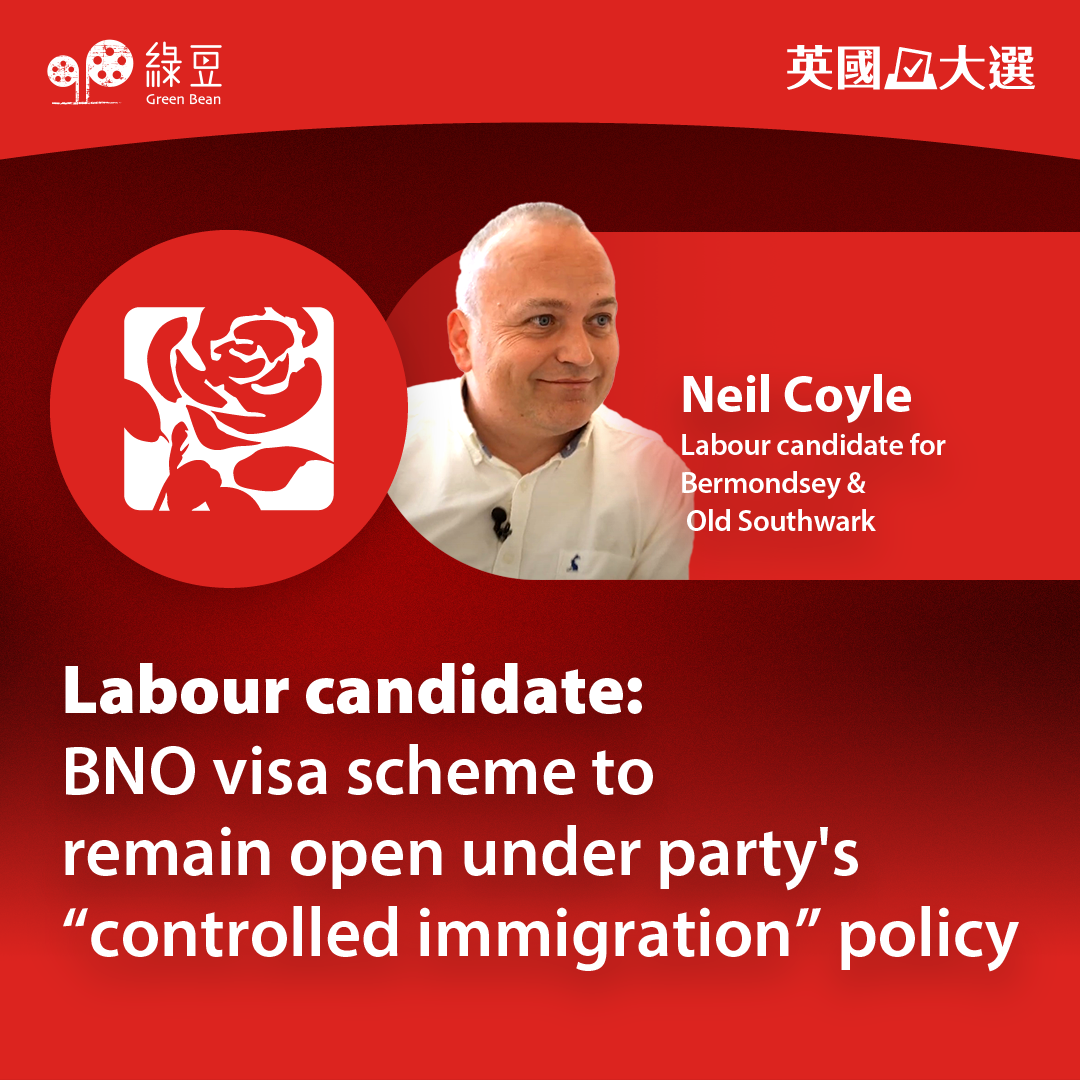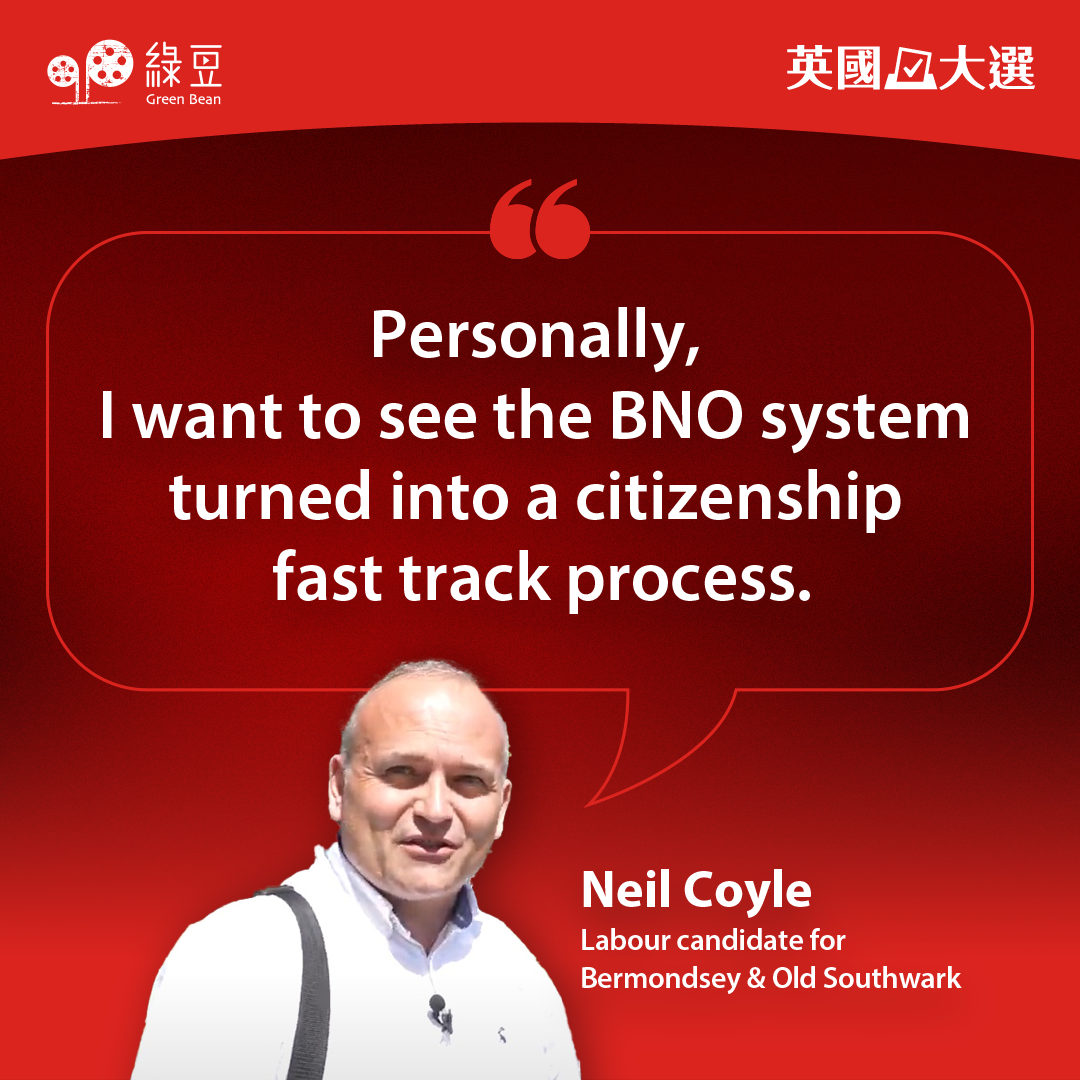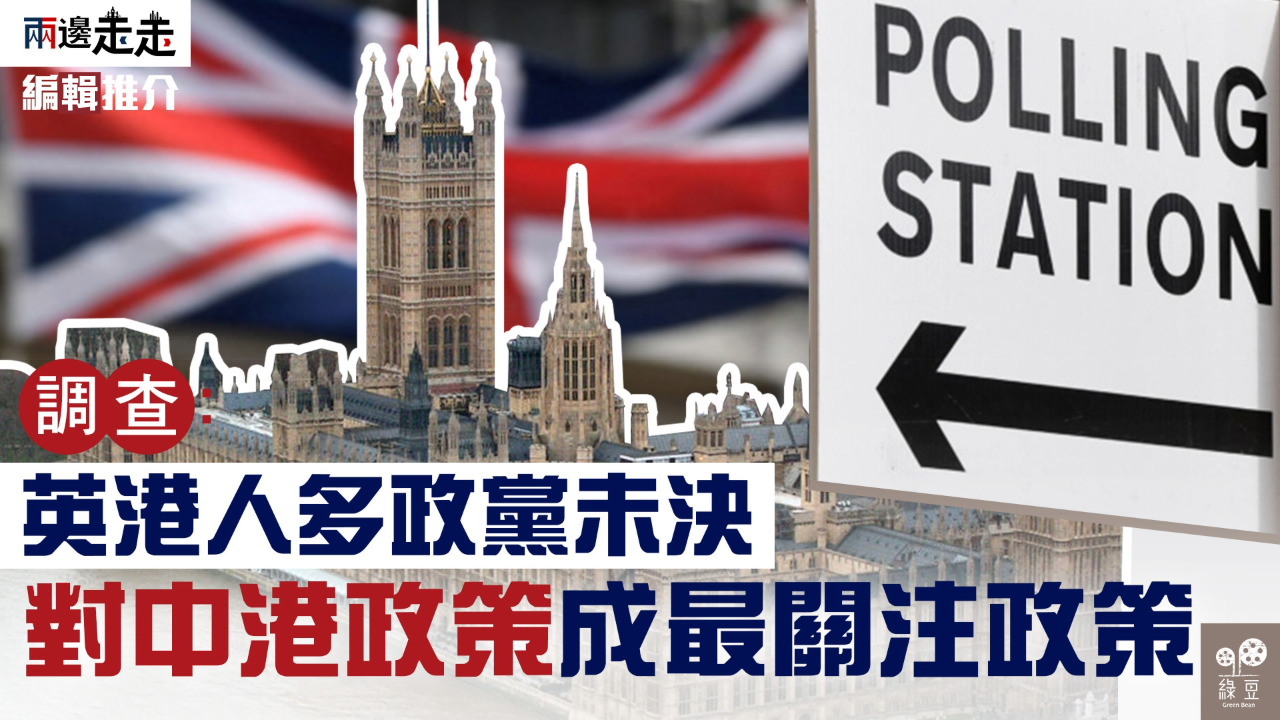Labour candidate: BNO visa scheme to remain open under party’s “controlled immigration” policy

Hong Kongers will continue to be welcomed into the UK under a new Labour government despite its quest for a strong border and a “controlled and managed” immigration system, according to a party candidate.
Neil Coyle, who sat on the House of Commons’ foreign affairs select committee, also pledged to push for extensions of rights and benefits for holders of British National (Overseas) status, including fast-track to full British citizenship and eligibility for home students’ university fee, if he is successful in defending his seat in central London.
“Yes, if we win, I don’t see it changing,” said Coyle, in response to whether the BNO visa scheme will remain open as a permanent route amid growing public sentiments to limit immigrants. “Controlled and managed, that is exactly what the BNO system is. I don’t think anyone includes the Hong Kong situation…in some of the issues around the English Channel. [Hong Kongers] are seen as exceptional, and I very much expect the system to be sustained.”
In an interview with Green Bean Media, the former MP for Bermondsey and Old Southwark discussed his party’s China and Hong Kong positions from the perspective of a backbencher aspiring for a government role.
Despite pledging in its manifesto to stand with and support members of the Hong Kong community who have relocated to the UK, the Labour Party stresses the need for the immigration system to be controlled and managed to cut net migration. It also runs on a platform to target illegal immigrants smuggled from Europe.
Coyle believes that on top of keeping the door open for BNOs and their dependents from Hong Kong, there is a need for further extensions of the eligibility and rights of BNO status holders to facilitate integration, in the light of the deteriorating situation in Hong Kong.

“Personally, I want to see the BNO system turned into a citizenship fast track process,” he said. “I think that’s the quickest way to resolve many of the issues that my constituents and others across the whole country who’ve come from Hong Kong face. Some of those barriers can be dismantled if we just skip from the BNO status to fast track for UK citizenship.”
Overcoming red tapes
Burning issues Hong Kong migrants are most concerned with, such as the need to pay international fees for sending their children to university, surcharge for public healthcare, and problems with obtaining travel documents, are among the “administrative hurdles” Coyle believes could be overcome by fast-tracking BNOs into British citizenship enabling them to settle in and contribute fully to society.
While he would not commit on, for example, whether a shortening to three years instead of the current five-year rule to achieve settlement status is quick enough, Coyle agreed that many costly red-tapes tangling Hong Kongers, such as having to pay as much as four times higher university tuition fee, could be slashed.
“I don’t think fundamentally that it is fair or reasonable for Hong Kong’s BNO status holders who are not going back to Hong Kong to be charged international rates when they are domestic students,” he said.
As regards the difficulties with the government bureaucracy faced by some Hong Kongers who are seeking asylum in the UK, Coyle said his party’s pledge to speed up clearing the backlog of asylum applications would especially benefit this group of predominantly young people.
Other issues he would like the incoming government to tackle include the problem faced by some BNO dependents who only hold Hong Kong SAR passports. They are struggling with the dilemma on how to convince the Home Office to issue them with travel documents upon the expiry of their passports on one hand, or face the potential safety risks in visiting the Chinese Embassy in person to apply for renewals on the other.
As for the recurring requests for intervention by BNOs who see billions of pounds worth of Mandatory Provident Fund contributions being withheld by banks in Hong Kong due to the non-recognition of BNO visas by the SAR government, Coyle said it is incumbent upon the incoming government to ensure British banks with branches in Hong Kong to comply with people’s legal entitlements to withdraw their life-long pension.
But Labour initiatives unpopular with the more affluent groups among the public, such as its plan to impose VAT on private school education, might alienate those Hong Kong parents who decide that their children are unsuitable to attend government-funded schools.
Coyle was adamant that his party’s policy to raise tax on “luxury private school education” would ultimately benefit Hong Kongers as a part of the general public, because the extra cash taken from their purses will be redirected to improving public services.
No vacuum in China foreign policy
According to a survey conducted in January by political group Vote for Hong Kong 2024, more than half of the 1,220 respondents prioritised foreign policy toward China and Hong Kong as the most important societal issue, with some calling for a clearer and more robust stance by the UK. Yet, the Labour Party’s policy blueprint is seen as comparatively thin on China and Hong Kong affairs.
In the Labour Party’s 136-page manifesto, the word China appeared twice at page 120 of the last chapter, where party rhetoric highlights the need to “co-operate where we can, compete where we need to, and challenge where we must”. But other than prescribing “an audit of our bilateral relationship” to facilitate understanding the challenges and opportunities posed by China, no other concrete actions have been pledged.
Coyle, who has been a member of the House of Commons’ Foreign Affairs Select Committee since May 2020, dismissed concerns that the prospects of being the incoming government has made Labour over-cautious on thorny diplomatic issues.
“The audit is a step up, because it recognises that the threat, the challenge that the People’s Republic of China Communist Party now presents to the UK,” he said, pointing to recent incidents of alleged Chinese attempts to “undermine” the UK such as cyber surveillance on UK parliamentarians, influencing academic freedom in British universities, and alleged attempts to infiltrate political parties.
But he conceded that before this review yields a fuller picture on the state of alleged China influence, a Labour government will not be in a position to commit to hawkish actions as suggested by some UK politicians and Hong Kong activists, such as imposing Magnitsky sanctions, closure of the mainland-funded Confucian Institutes, and take action against the Hong Kong Economic and Trade Office in London in the aftermath of the alleged spy case.
Citing complaints by some of his constituents who said they have been allegedly followed by the “Chinese government” seeking their addresses, Coyle said the incoming government will have to plug internal security loopholes as well as provide assistance and training to both parliamentarians and Hong Kong activists to counter what he called “intimidation and harassment tactics”.
Settlement and discrimination
Coyle acknowledged difficulties faced by some Hong Kongers in job-seeking as a result of what he called “a stigma” attached to non-locals by employers, who are desperately trying to avoid breaking Home Office restrictions on foreign workers. He also wishes to see improvements to the accreditation process in recognising Hong Kongers’ professional qualifications in the UK.
The Labour politician, who is himself no stranger to controversies with his battle against alcohol, harassment allegations and swearing in public, has paid the price for making alleged racist remarks to a British Chinese reporter in February 2022. That outburst resulted in suspension from Parliament for five days and saw his Labour whip withdrawn until May 2023. Coyle said he was very sorry for the mistake he made under the influence of alcohol, and had become a teetotaller since the incident.
A total of eight candidates are running for the seat in Bermondsey and Old Southwark. The other candidates are: Rachel Bentley (Liberal Democrat); Piers Corbyn (Independent); Barry Duckett (Independent); Susan Hunter (Green); Jonathan Iliff (Conservative); Niko Omilana (Independent); and Tony Sharp (Reform UK).





